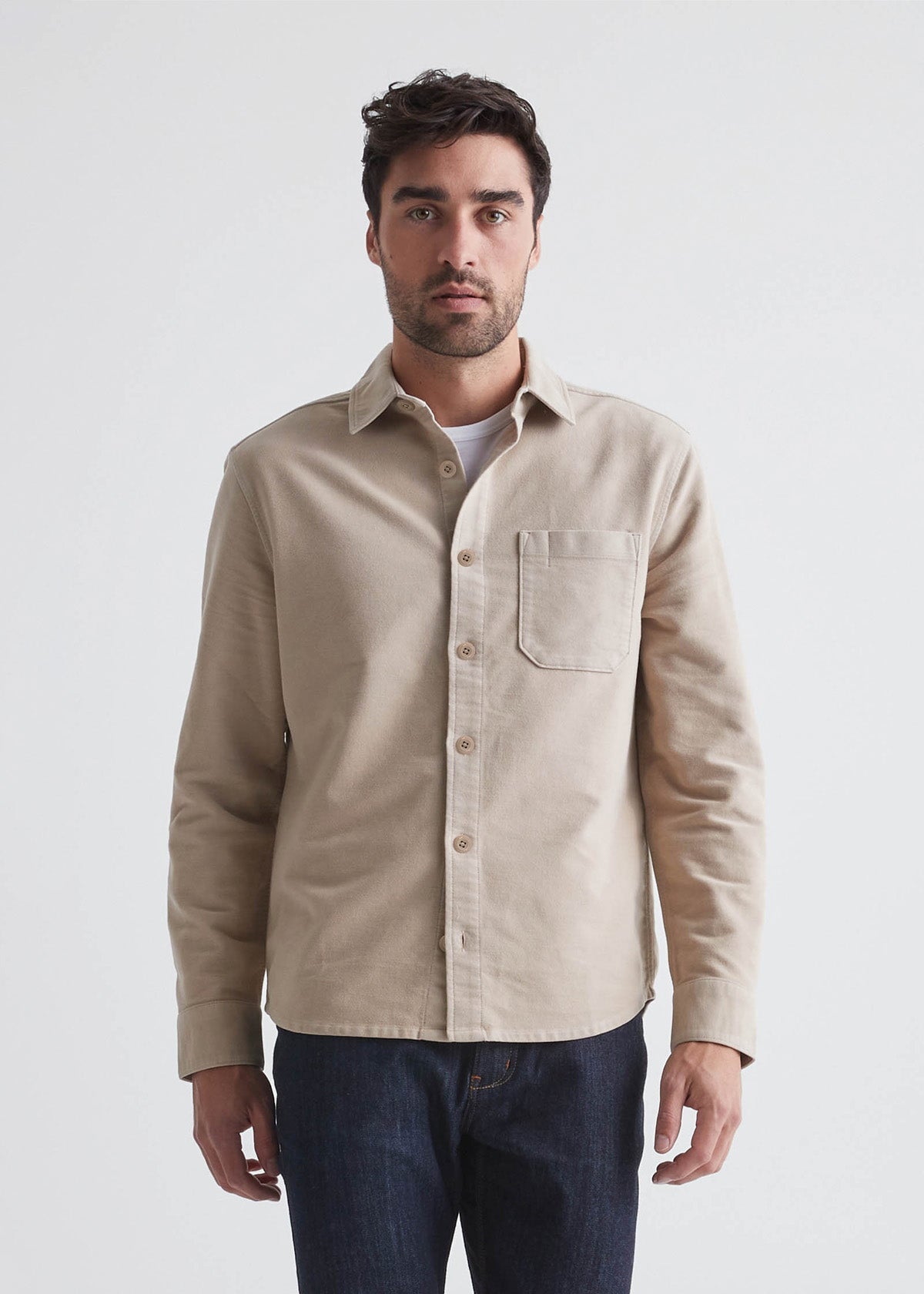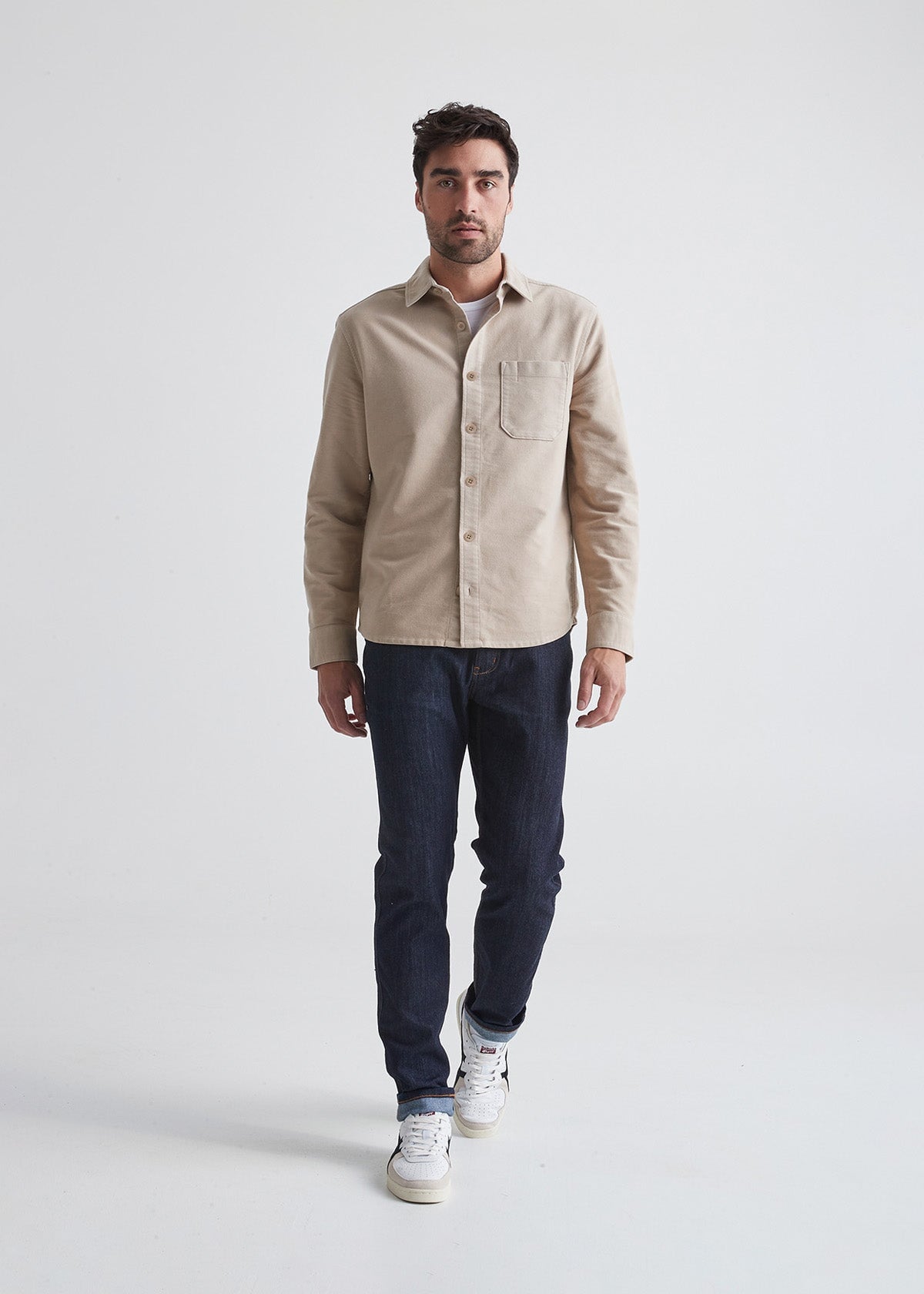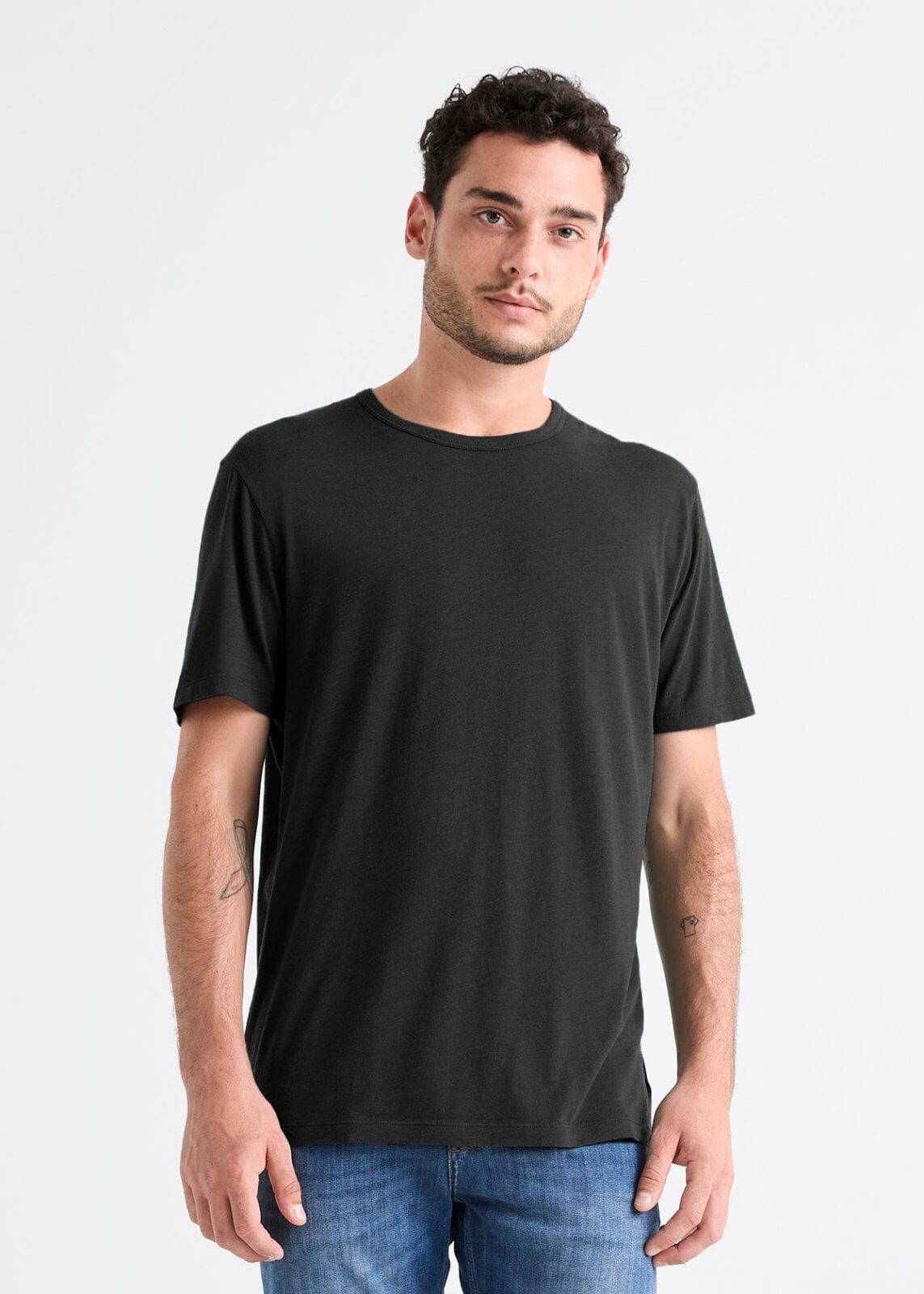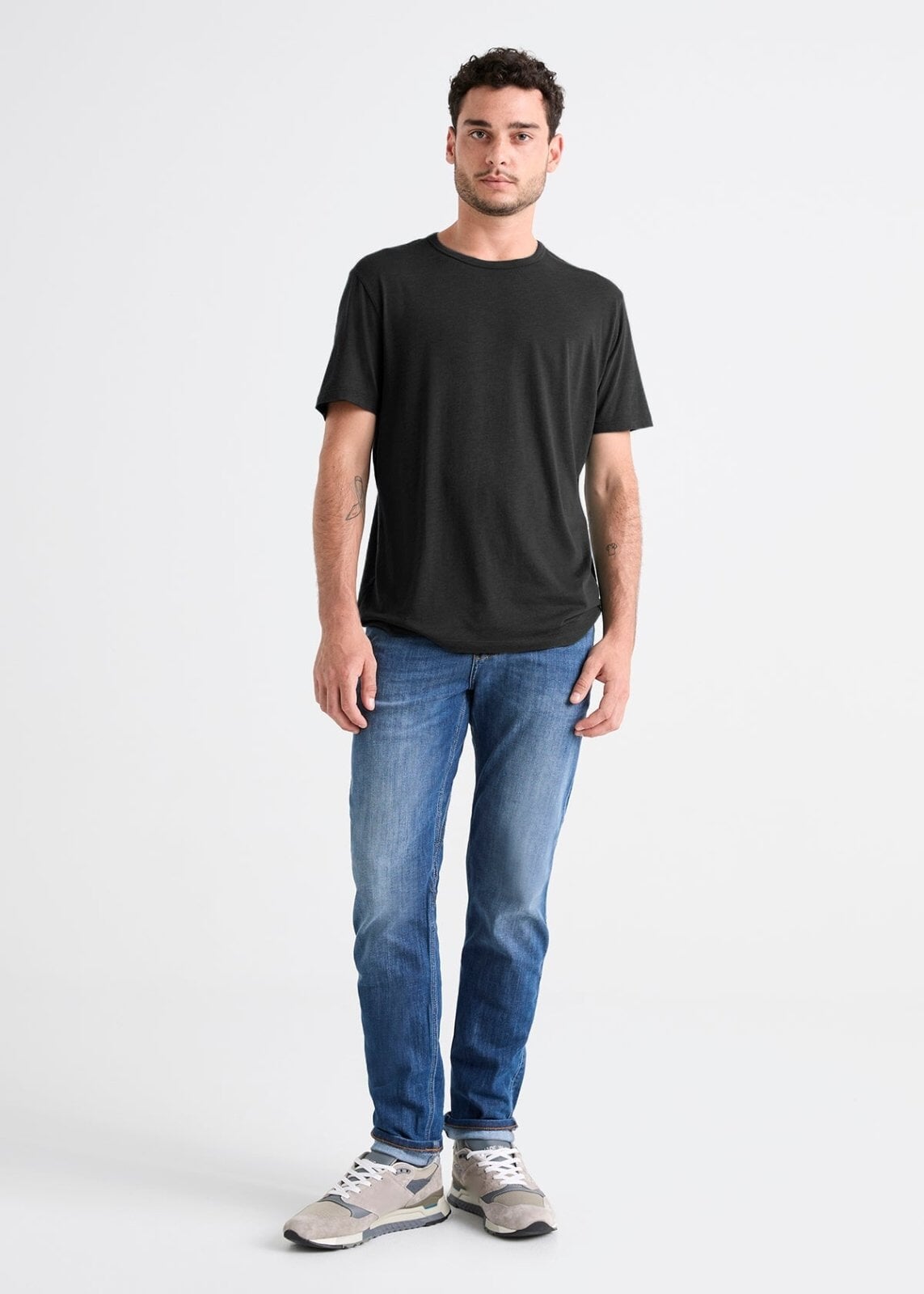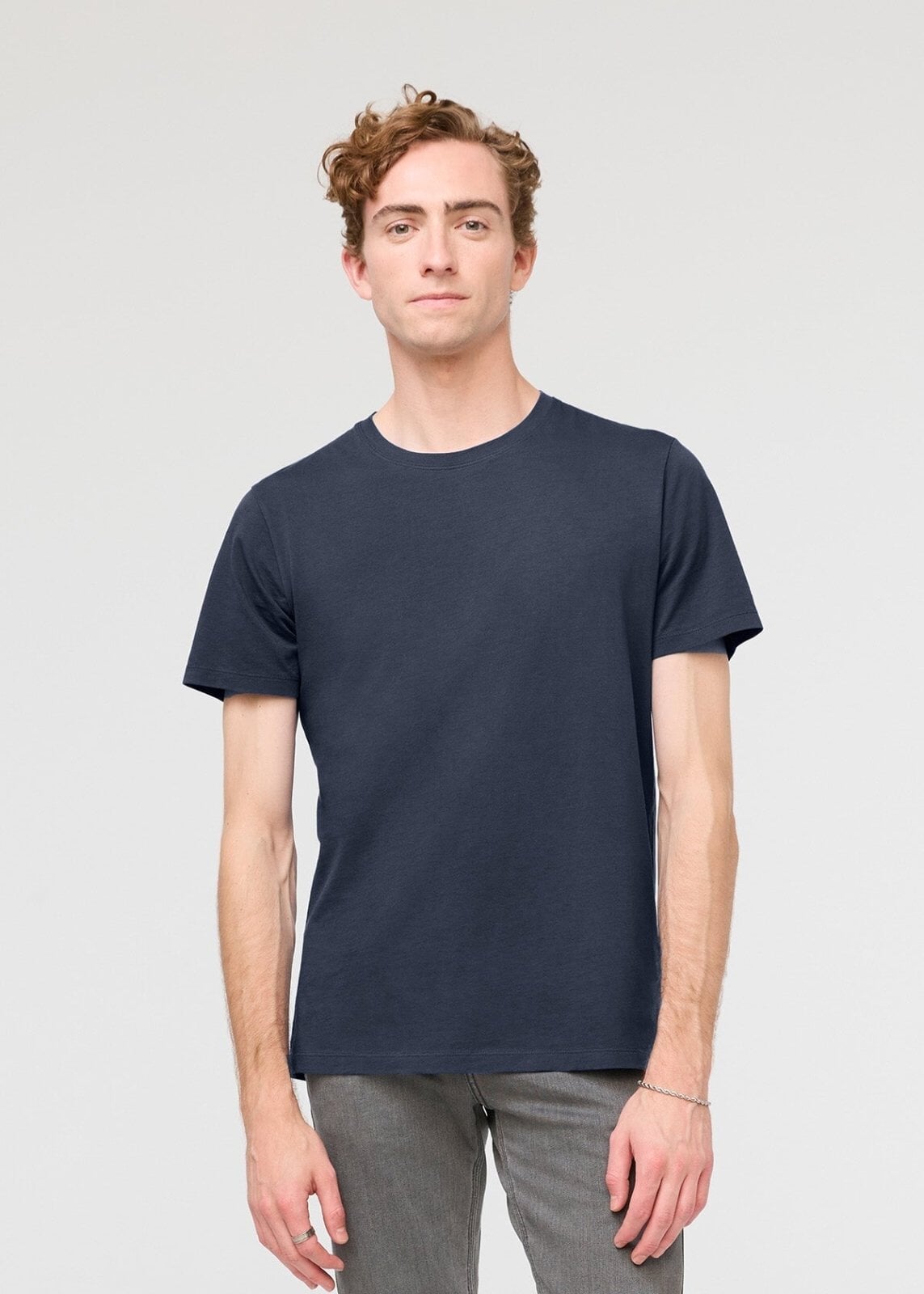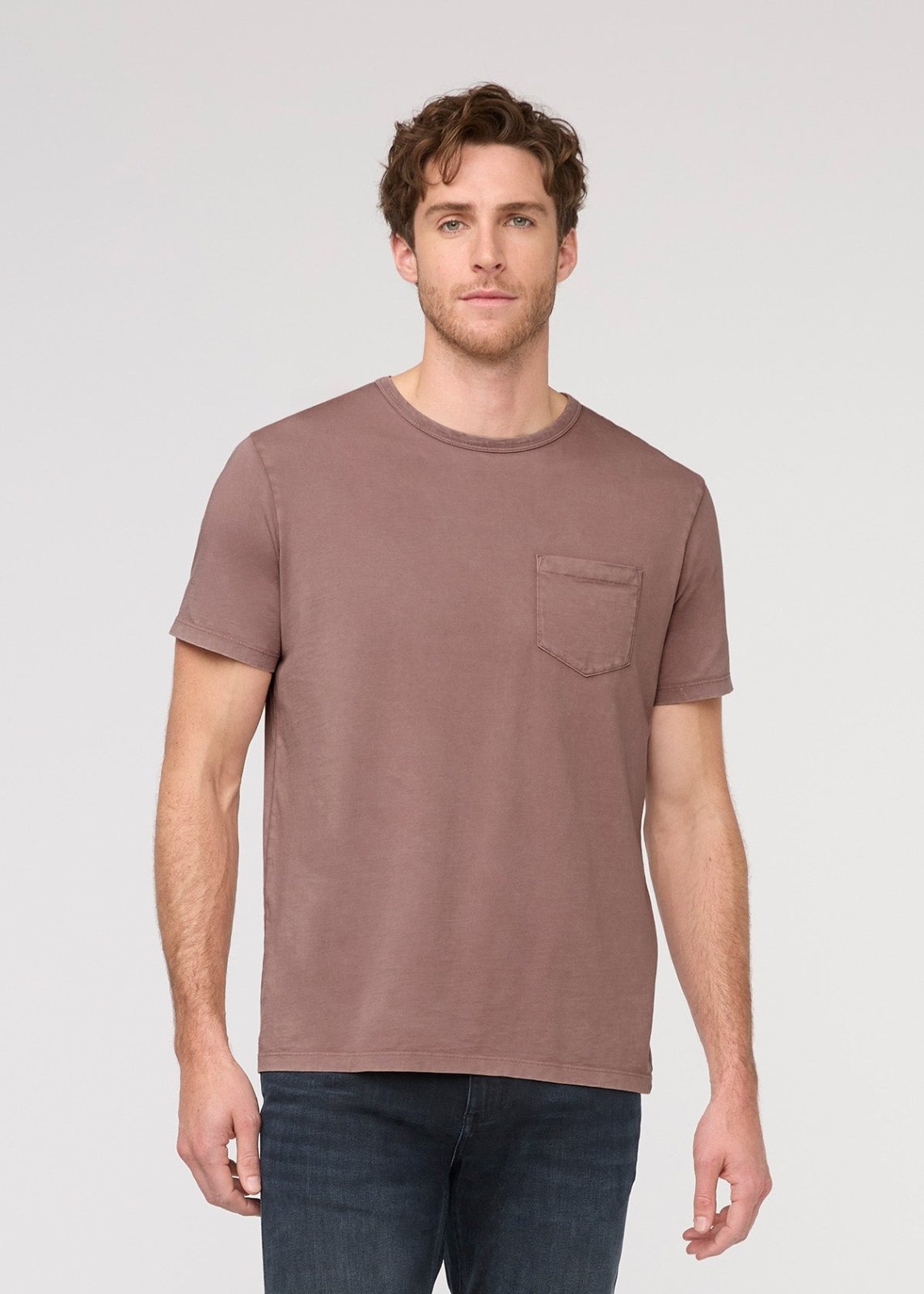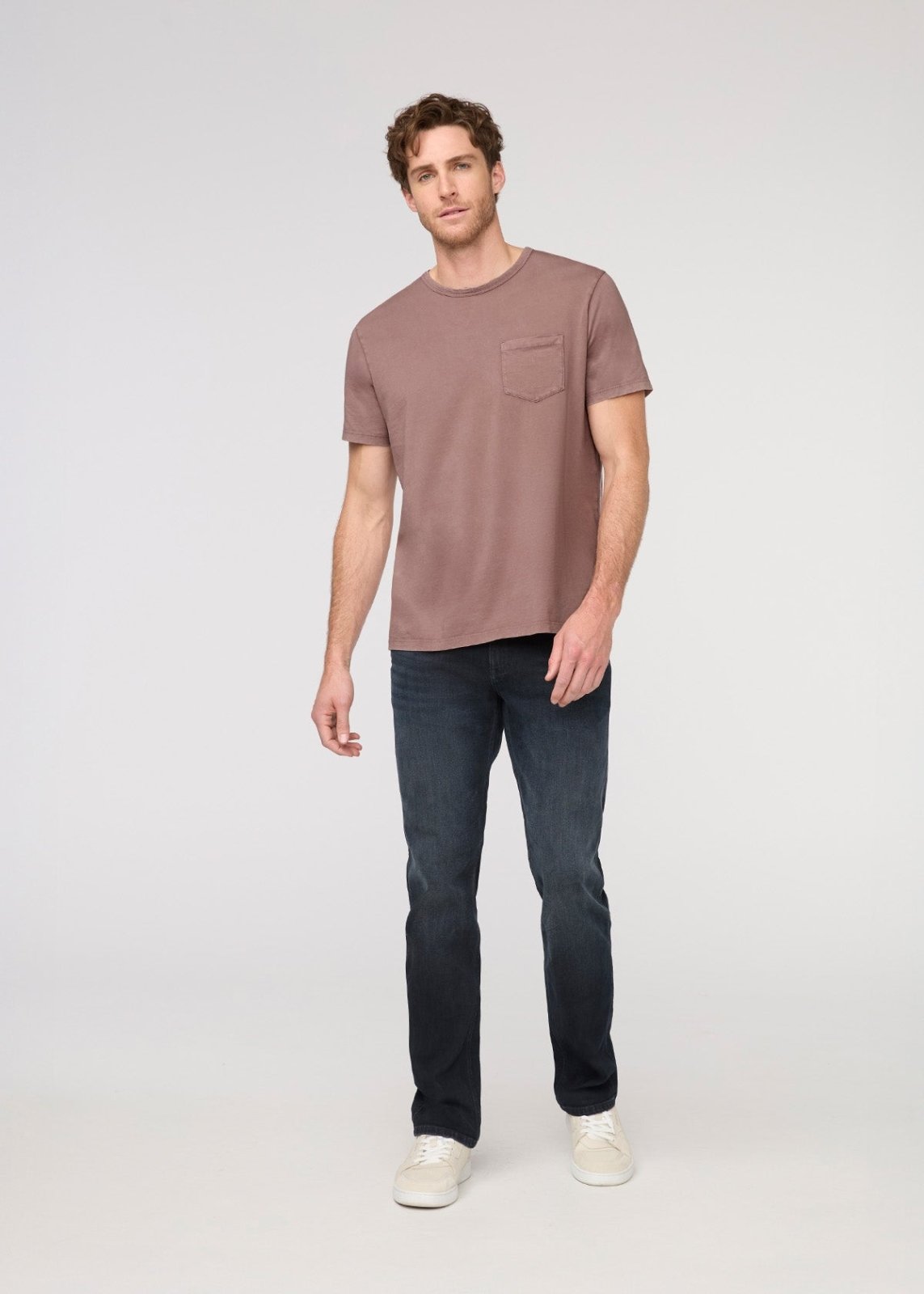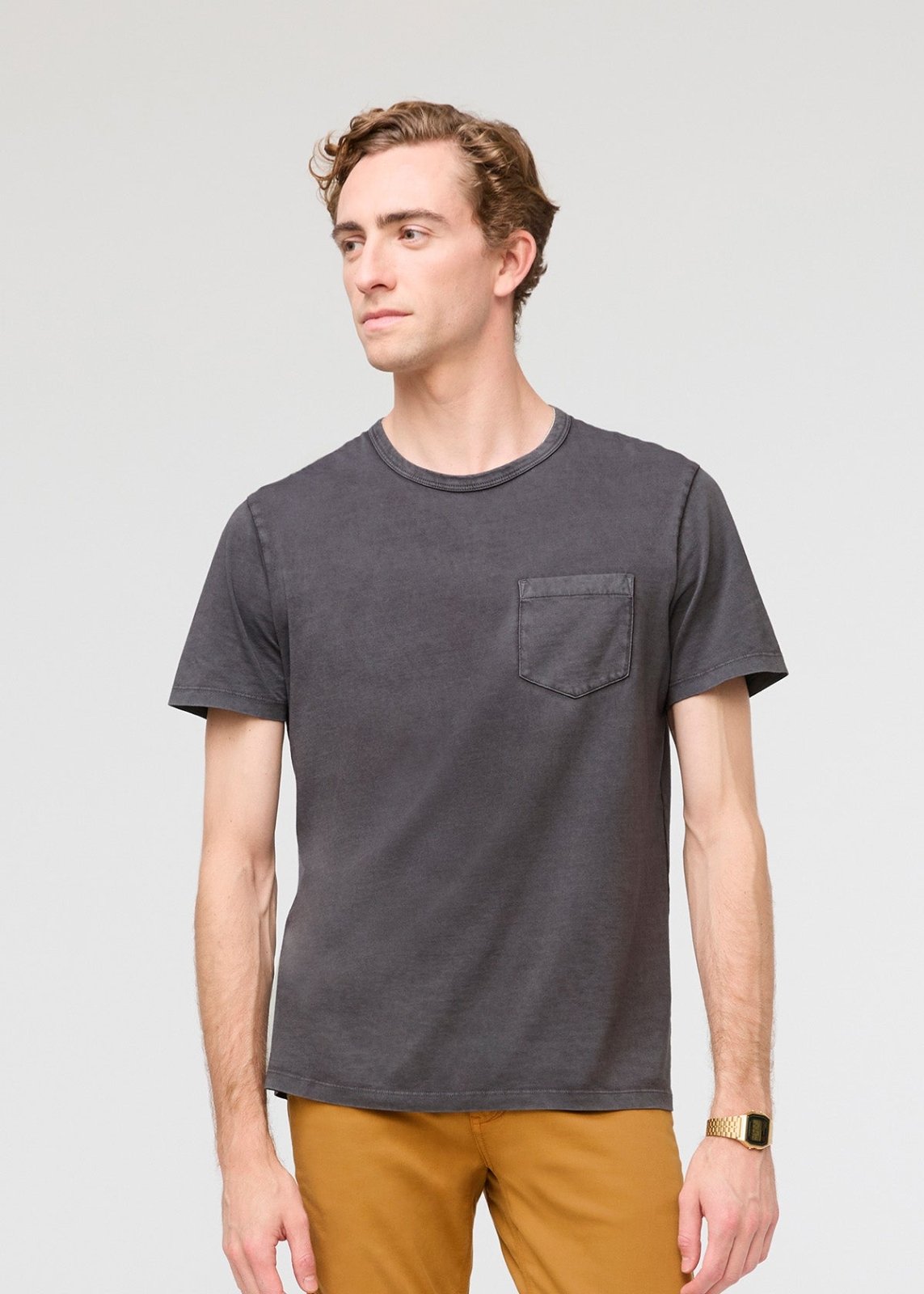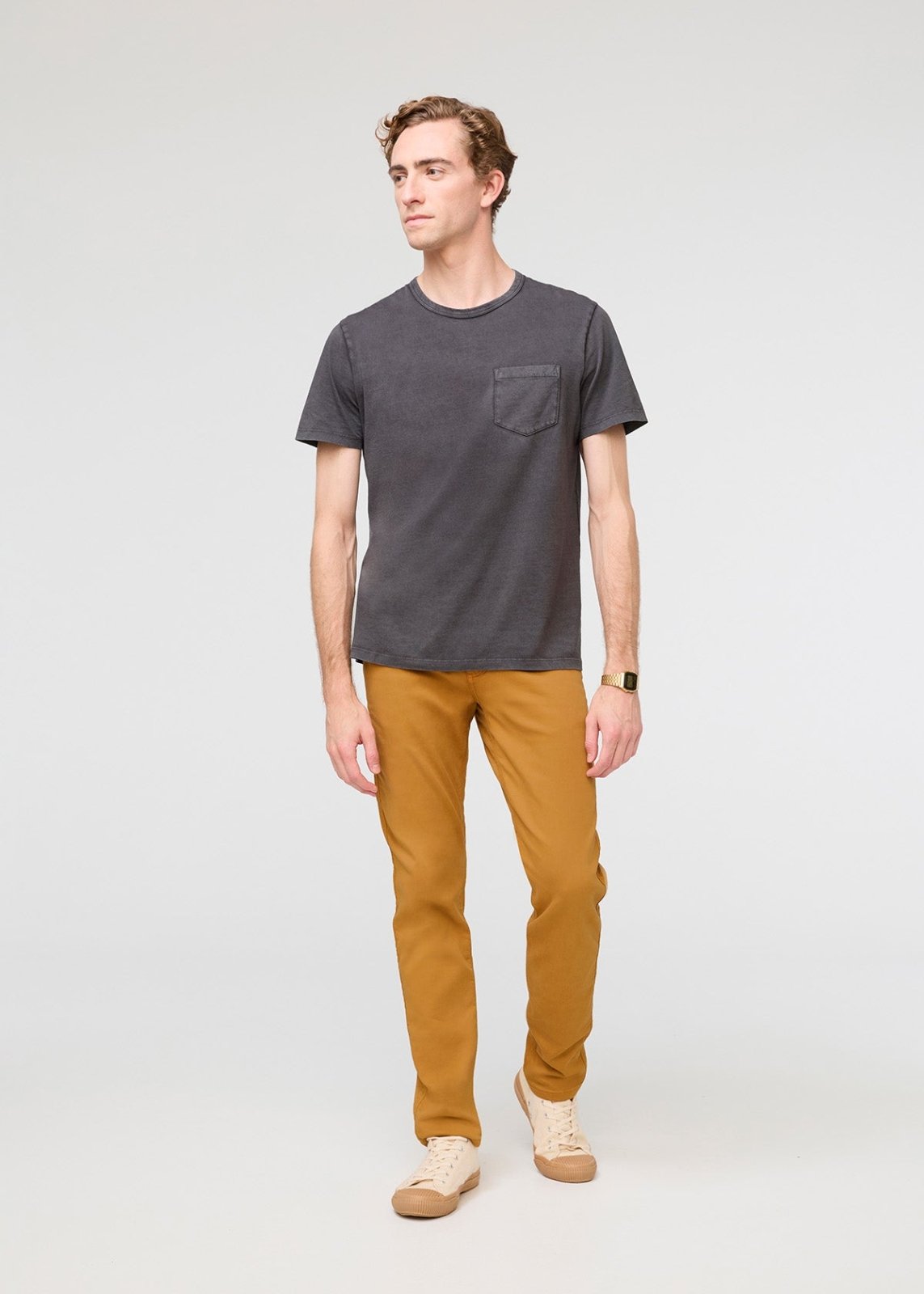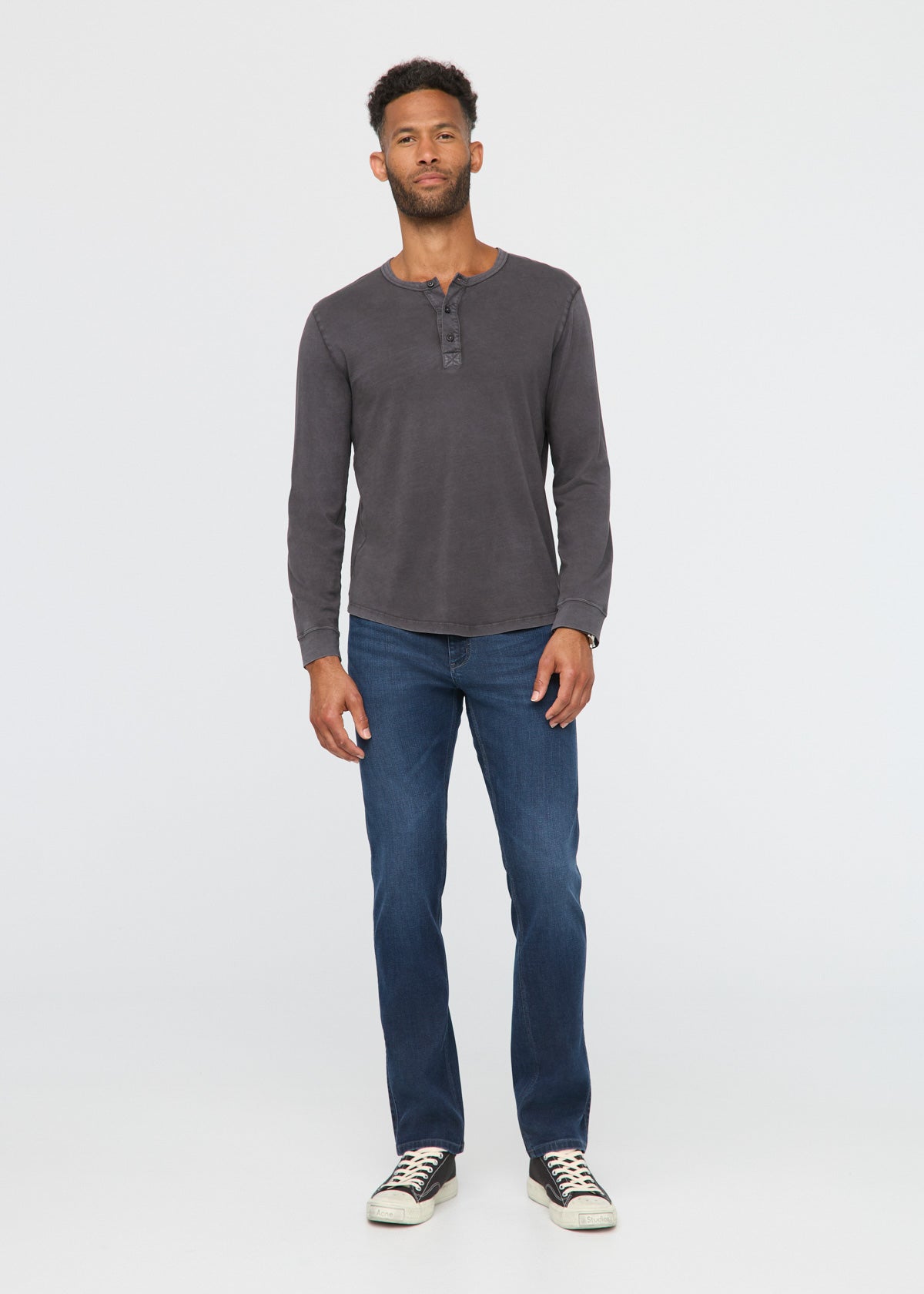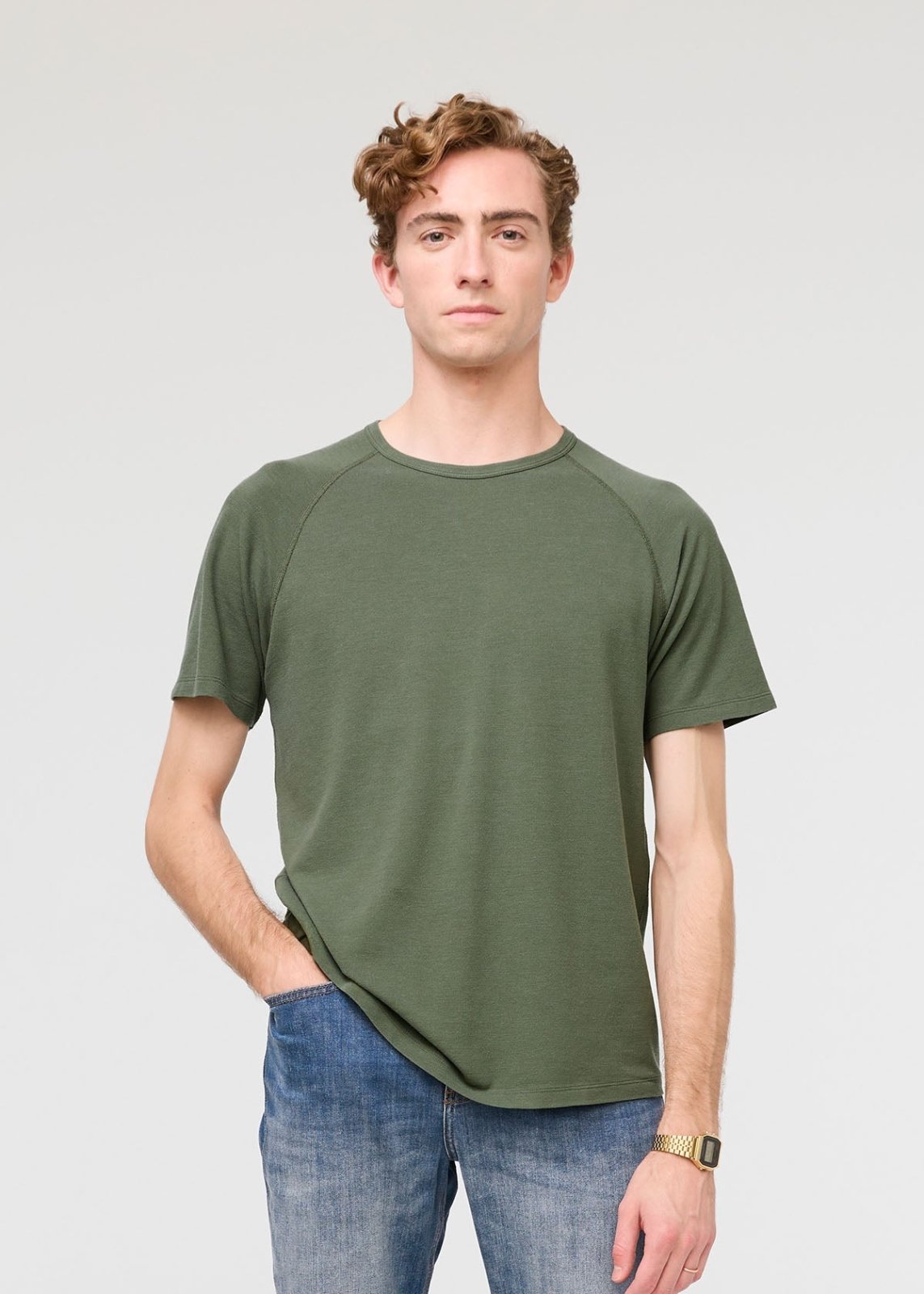Men’s shirt measurements can be a struggle to understand. Different styles and sizing can make finding a shirt that fits you properly more complex than planning a trip abroad.
Finding a shirt that makes you look and feel good should be simple. We’re going over everything you need to know about shirts so you never waste your time trying to figure out sizing and measurements again. Read on for everything your need to know about sizing and measurements. Or, skip ahead to the quickest way to measure your shirt size.
Alpha and Numeric Men’s Shirt Sizing
Shirt sizing can be comically convoluted. Sometimes you’re a size Medium and sometimes you’re a size 15 34/35. That’s the difference between numerical sizing and alpha sizing. For men, formal shirts are typically sized numerically, whereas less fitted, more casual shirts tend to be measured in alpha sizing.
Alpha sizing is pretty straight-forward; small, medium, and large are common enough. But trying to figure out numerical sizing for men’s shirts can feel like you’re deciphering hieroglyphics. Here’s the scoop: The first number on the size tag refers to the neck size and the second number is the sleeve length. So a shirt size “15 34/35” means that the neck is 15 inches and the sleeve is between 34 and 35 inches.
Numeric measurements are helpful for business shirts because it’s more specific than alpha sizes meaning you can typically get a more tailored-fitting shirt without needing alterations.
How Are Men's Shirt Sizes Measured?
Numeric sizing references the neck measurement and sleeve measurement. But that’s not all that goes into shirt sizes.
There are four measurements to note when you’re on the hunt for a quality button-up:
- Neck
- Sleeve
- Chest
- Waist
Tips For Taking Men’s Shirt Measurements
It seems straightforward enough to measure your neck, sleeves, chest, and waist. But just ask your nearest tailor and they’ll confirm there’s a bit of a knack to it. For example, it’s ideal to use a soft measuring tape when taking body measurements, as it’s easy to wrap around your body. If you don’t have a measuring tape like this, you can use a string instead and measure it with a ruler or stiff tape measurer.
Armed with the right tools, next you need to know the right methods for measuring. Here’s what you should know about taking your body measurements a shirt:
Neck Measurements
Being half of a numerical size, the neck is one of the most important measurements in a men’s shirt. It’s vital to get it right. The biggest variable in taking an accurate neck measurement is making sure you factor in enough room for comfort.
To get a proper neck measurement for your dress shirt, first wrap the measuring tape around your throat. While keeping the tape in place, slide one to two fingers between your neck and the tape. This will allow some space for breathing when the collar is buttoned.
Sleeve
Your sleeve measurement is more than just the length of your arm. To get this right, measure from the point on your spine where your neck intersects your shoulders. Run the tape along the top of your shoulder and down on the outside of your arm toward your wrist. End the measurement where you want the cuff of your sleeve to sit. Don’t forget to allow a bit of room in the measurement by bending your arm slightly.
The length of each arm is somewhat different in most people. Measure both sleeves twice and note the longer of the two. If your sleeve measurement is between two available shirt sizes, always opt to buy the longer of the two. Too much fabric is easier to work with than not enough.
Chest Measurements
Start by wrapping a measuring tape around the fullest part of your chest and backside. Usually, that would mean the tape measure will run over top of your nipples and shoulder blades. To get an accurate measurement, make sure you’re holding the tape level and parallel to the ground. It’s helpful to pin the start of the tape in place between your arm and side as you level it and wrap it around yourself.
To get the final measurement, take a small breath in. This will allow for a comfortable and non-constricting fit.
Waist Measurement
Regardless of technicalities, consider your waist to be the height at which you would comfortably wear your pants. If you’re not sure, measure around your torso about one inch below your belly button. Keeping the tape parallel with the ground. For the most reliable waist measurement, stand naturally and place one finger between your body and the measuring tape.
The Quick Way To Find Your Shirt Measurement
Even with the right tools and methods, taking your body measurements can be an uphill battle without a helping hand. When you need to figure out what size shirt you wear, but are taking measurements solo, there’s an easier way to get it done: Instead of measuring your body, grab your best-fitting shirt out of the closet and measure it.
Body measurements are different from measuring an existing shirt. Here are some simple notes to make sure you get helpful numbers from this shortcut.
Tips for measuring your shirt:
- The collar measurement should be taken when the collar is spread flat. Measure from the middle of the button hole to the center of the collar button.
- To measure the chest, button the shirt and lay it flat. Then, measure from edge to edge just below the armpit and double the number.
- The waist of the shirt will be the most narrow point.
- Measure the sleeve along the outside edge, opposite the sleeve seam. Start at the top of the shoulder and end at the edge of the cuff.
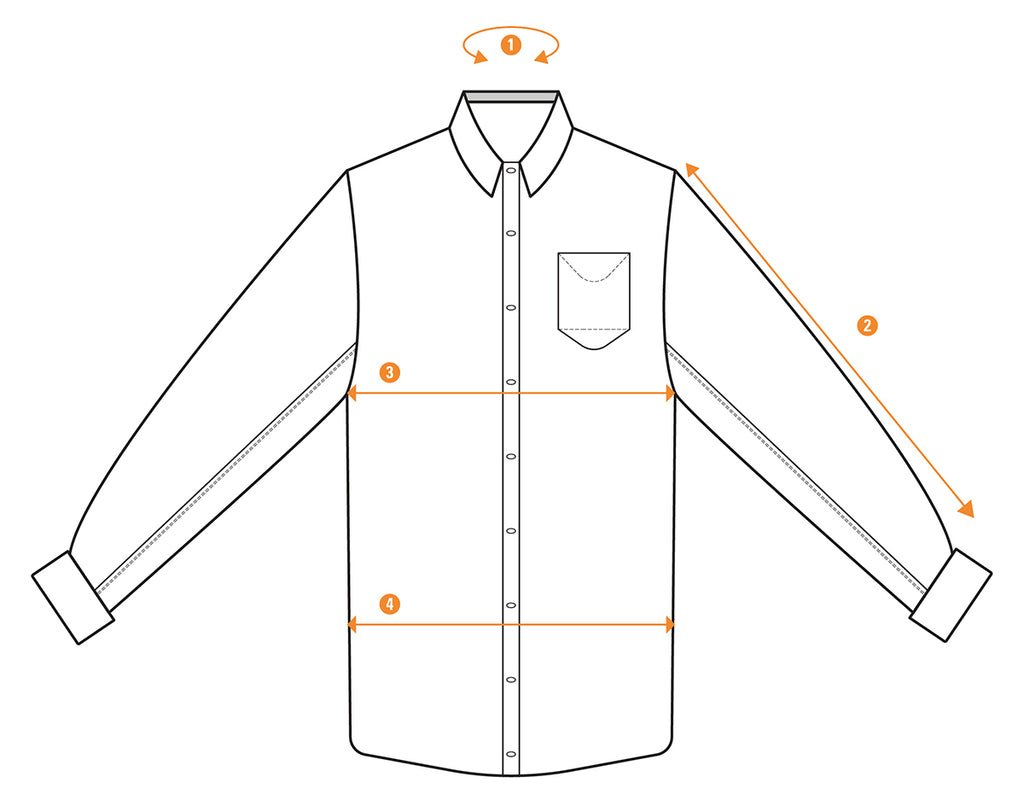
Look Good In Your Shirts, Effortlessly
Men’s shirt measurements aren’t entirely straightforward. Knowing what they mean and how to find your size calls for some expert advice. Now you’re fully armed with the insights and skills to hit the mall in search of a shirt that’ll fit you like a glove. Now that you know your measurements, choose a well-made shirt that does it all. Check out our men’s shirts that are ready for anything.

















